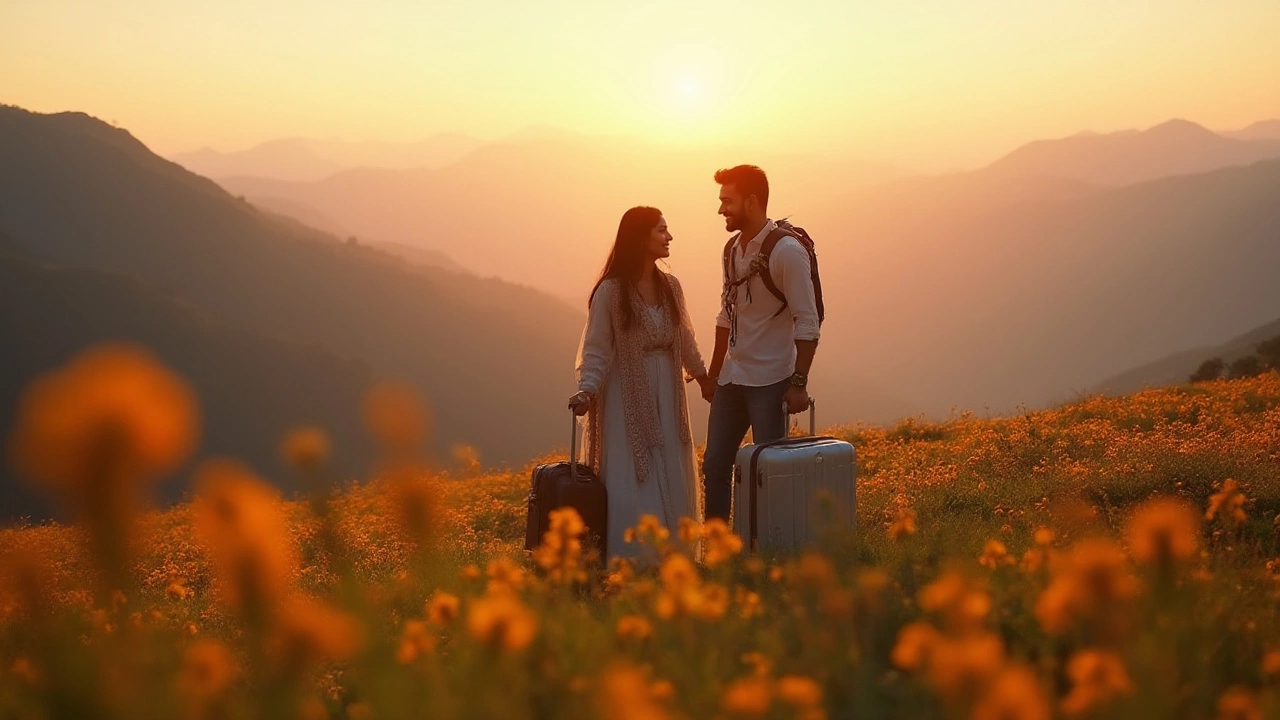You’ve survived the wild ride of wedding planning and now, suddenly, everyone’s asking the same thing—how long are you two taking for your honeymoon? There’s no magic number, but there’s a lot more to the answer than most folks realize. Honeymoons aren’t just a vacation; it’s a once-in-a-lifetime escape that you’ll both remember long after Charlie the cockatoo has picked apart the “Just Married” banner you hung up in your flat. The pressure to make it perfect can get real. Yet, guess what? Studies show that what couples remember most isn’t the destination, or even the length, but those first moments of just being together, outside your familiar day-to-day. Still, let’s get into the nitty-gritty: what actually influences the ideal honeymoon duration and what can help you decide what’s best for the two of you?
Factors That Influence the Ideal Honeymoon Duration
If you ask around Wellington cafes, you’ll get some wild answers—my mate reckons five days is luxury; another says three weeks minimum. Truth is, several unique things shape how long your honeymoon should be. The most obvious: work leave. In New Zealand, the standard annual leave is four weeks, but planning a wedding can chew up a chunk of that. Sometimes, couples carve out a week, while others manage a glorious fortnight off the grid. Think honestly about what your jobs will allow—there’s nothing romantic about reading work emails on a remote beach (Charlie the cockatoo squawking at you about deadlines, anybody?).
Budget, though, is the real game changer. Kiwis usually drop around $6,000 to $8,000 NZD on honeymoons, according to a 2024 Sensible Travel Survey. That’ll get you a plush five-night escape to the Cook Islands. Double it and you could be biking through France for two weeks or island-hopping in Indonesia. But you don’t have to bleed your savings dry. For some couples, four nights in a cozy Waiheke Airbnb feels just as extravagant as a globe-trotting adventure. Don’t forget: an extended honeymoon means more eating out, excursions, and (let’s be real) mini-bar splurges.
The last piece isn’t money or logistics—it’s energy. Wedding planning exhausts most couples. A short-and-sweet honeymoon lets you unwind and recharge. But if you’re the bucket-list type, two weeks or more can scratch that adventure itch and give you time to decompress without feeling rushed. Your personalities matter here. Are you both planners who thrive on packed itineraries, or would you rather chill with a bottle of Marlborough Sauvignon and see where the days take you? That’s one crucial piece couples forget about in the build-up.
Popular Honeymoon Lengths Around the World
Trends pop up everywhere, and honeymoon duration is no exception. In the US, the “traditional” week-long honeymoon reigns, mostly due to limited leave entitlements. In Australia, like here in New Zealand, two weeks is the gold standard if you can swing it. Over in Europe, quick city breaks are popular—think four nights in Venice or Paris—and some couples take a second, more extended honeymoon (“minimoon”) months after the wedding.
Here in Aotearoa, the ocean calls. New Zealand couples are split—some choose a classic week in the Pacific (Fiji and Rarotonga always top the list), while others use the chance to finally visit somewhere far-flung. StatsNZ reported in 2023 that about 65% of Kiwi newlyweds spent at least seven nights away, with a solid chunk heading out for two weeks or more, especially on long-haul trips to Europe or Asia. Local travel agents say the “10-14 nights” request is by far the most common for honeymoons heading to places like Thailand, Bali, or the Maldives. If your wedding is smack in the middle of the southern hemisphere winter, it’s hard to resist somewhere sunny for longer.
But don’t get tricked into thinking you need that big “once-in-a-lifetime” odyssey. More couples (especially those with kids or tight schedules) opt for weekend getaways right after the wedding, planning a longer “real” honeymoon for their first anniversary. This breaks up the cost and stress. It’s also totally normal these days for honeymoons to happen weeks or even months later if it works better for your life. There isn’t a right or wrong.

Tips for Choosing the Right Honeymoon Duration
Before you start searching for tropical resorts or adventure packages, sit down together and figure out what matters most. Here’s what’s worked for couples I know—and what travel experts agree makes the difference.
- Prioritize your rest & connection. If you’re both running on fumes from wedding chaos, don’t overschedule. A week somewhere quiet might be exactly what you need.
- Think about the journey. Losing two days to flights (hello, Bali or Greece) means a weeklong trip can suddenly feel short. If you’re booking a long-haul, tack on extra days so you’re not jetlagged the whole time.
- Use travel time as part of your adventure. Some couples book multi-stop trips or even road trips (the Classic New Zealand Wine Trail is a winner) so the journey is as fun as the destination.
- Balance experiences and downtime. If you’re both travel junkies, consider two weeks with a mix of action and rest days built in—or plan a shorter trip with one or two big bucket-list activities.
- Set a budget cap from the start and match your duration to it. It’s better to have five luxurious days than ten days scraping by on instant noodles and regrets.
- Check weather patterns, especially in the tropics. Cyclone season can derail plans—double check before booking those long-haul flights in the off-season.
- Don’t forget the pet-sitter! If you’ve got a needy bird like Charlie, a shorter honeymoon (with a bigger anniversary trip later) might take the stress off both you and your petsitter.
Here’s a reality check nobody talks about: sometimes, shorter honeymoons end up being more memorable because couples focus on being present, not just ticking destinations off a map. As one Wellington couple put it, they loved their five-night South Island road trip way more than their friends’ two-week Euro blitz, just because they were less tired and didn’t argue once about lost luggage.
Making It Work for Your Lifestyle
Nothing wrecks the wedding afterglow like coming back to everyday life with a bigger hole in your wallet than expected or feeling like you missed out because you followed someone else’s playbook. Take your personal vibe into account. Do you love structure or are you happiest seeing what unfolds every day? Consider your regular routines and responsibilities: work, family, pets (or a demanding cockatoo). You might swap one long trip for a few “mini honeymoons” spaced through the year. Some couples take advantage of long weekends or holidays, stretching their time away even if it means a few shorter trips, rather than one epic journey.
Modern honeymoons look different than your parents’ generation. There’s less pressure to knock out a major, three-week international adventure all at once. The world’s a lot more accessible now—budget flights and creative accommodation options make frequent getaways possible. Don’t be shy about combining your honeymoon with something practical, like visiting overseas family; just carve out alone time so it still feels special. If sustainability’s your thing, consider eco-friendly local trips instead of long-haul flights—two Wellington couples I know biked through Martinborough vineyards for their honeymoons last summer, and raved about the connection, cycling, and world-class wine (plus way less jetlag).
One final thing: your honeymoon should reflect your relationship. If you’re both spontaneous, don’t overplan. If you love routine, map things out so you don’t stress about details. And remember, romance isn’t measured in days away—it’s about those moments you’ll both laugh about twenty years from now. Plan the *honeymoon duration* that fits your real life, not your Instagram feed or anyone else’s expectations. That’s the secret: whether it’s three nights or three weeks, your honeymoon should work for you two—and maybe your feathered roommate at home.
